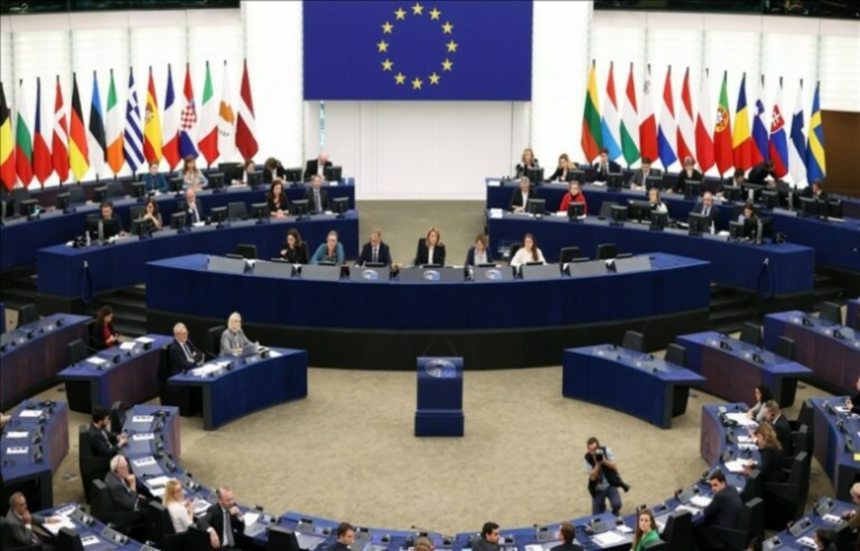A draft report by the European Parliament calls for the removal of the European Union’s measures imposed on Kosovo in June 2023.
“We urge the immediate removal of the EU measures against Kosovo, which are no longer justified and contradict Kosovo’s demonstrated commitment to European values and alignment with EU policies,” the draft states.
The report also acknowledges Kosovo’s commitment to EU integration, emphasizing that Kosovo’s future lies within the EU. It stresses that efforts to bring Kosovo out of a “grey zone” are in the interests of both Kosovo and the EU.
The draft report supports Kosovo’s application for EU membership and urges EU member states that have not yet recognized Kosovo to do so without further delay.
The report also supports Kosovo’s request for membership in the Council of Europe and its plan to join NATO’s Partnership for Peace program.
In addition, the report expresses support for the dialogue process to normalize relations with Serbia and welcomes the appointment of Peter Sorensen as the special envoy for dialogue.
As for the rule of law, the report highlights meaningful progress in justice, security, and freedoms, as well as the fight against organized crime and the functioning of the market economy. However, concern is raised about the unsatisfactory situation regarding corruption.
Serious concerns are also expressed about systemic weaknesses in Kosovo’s justice system, particularly regarding independence and the respect for the separation of powers. Special concern is raised due to criticisms from government officials regarding decisions in individual cases.
The report also highlights concerns about the security situation, condemning the attacks in Banjska and Iber-Lepenc, and calls for the perpetrators of all violent acts to be brought to justice. It expresses particular regret that Serbia has not brought to justice those responsible for the attacks in Banjska, including Milan Radojčić.
The author of the draft is Riho Terras, the European Parliament rapporteur for Kosovo.
This document will be presented to the European Parliament’s Foreign Affairs Committee on Thursday, February 20. After the draft is amended, it will be approved by this committee, and in early summer, it will be voted on in a plenary session, where it will take the form of a European Parliament Resolution.







